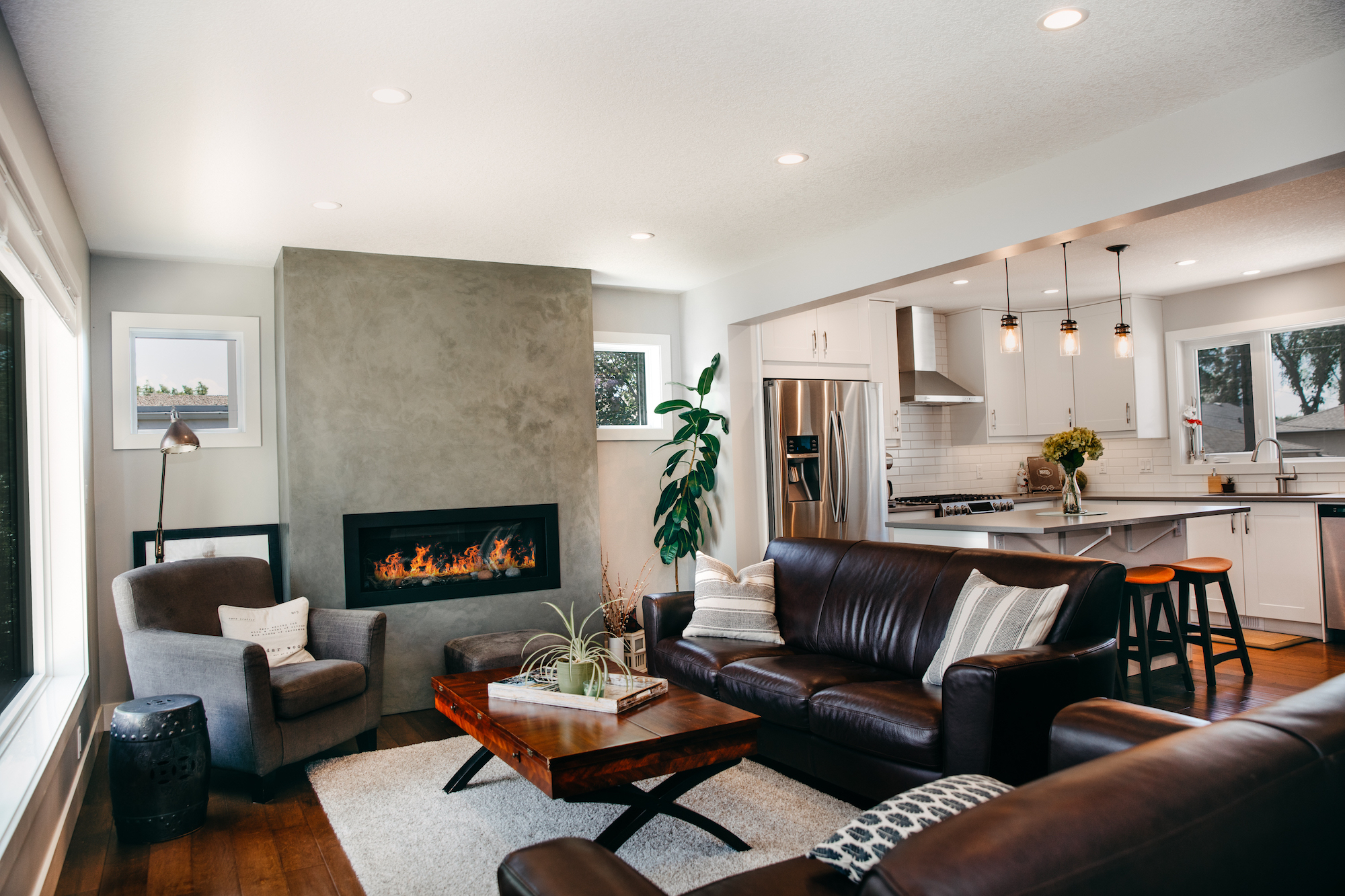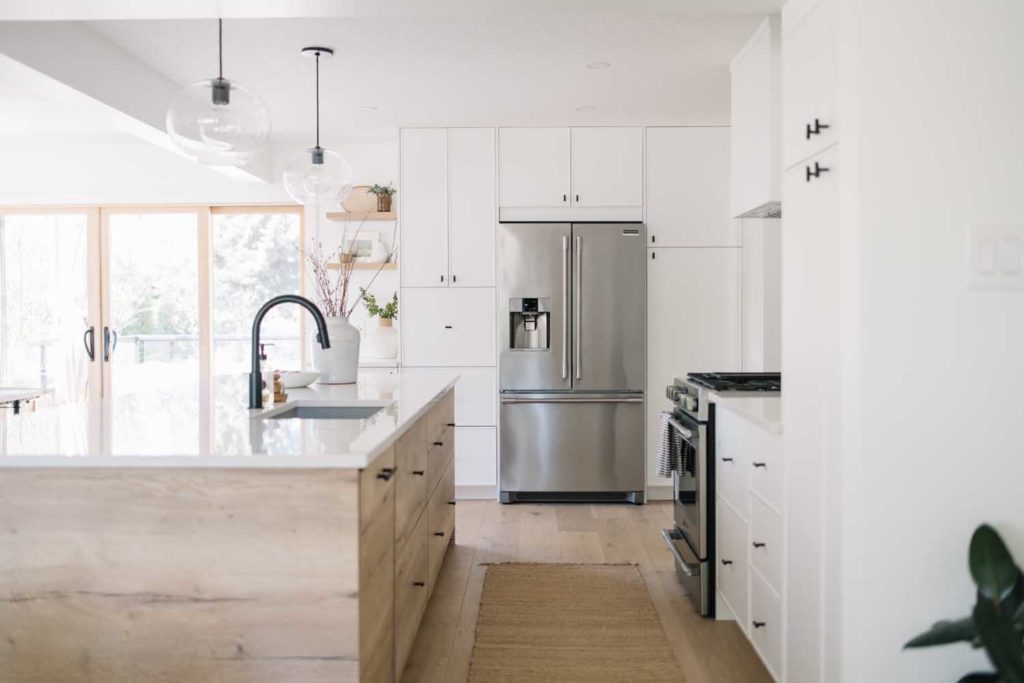Are you planning a facelift for your home in 2023?
 by Kara Murray, Partner
by Kara Murray, Partner
Alair St. Albert
—
Renovations can add value to your home as well as make it more functional, efficient and cosmetically updated. But let’s face it. Home renovations are stressful. The time, the energy, the money and the mystery of the unknown all contribute to a project that can feel overwhelming and expensive. In order to keep your stress to a minimum, and your bank balance higher, I would suggest avoiding these common challenges while remodelling your home.

Living In Your Home During The Renovation Process
- Depending on the scope of work, you would likely alleviate a lot of stressors by staying elsewhere while your home is under construction. A smaller bathroom renovation, paint job or new flooring wouldn’t require you to move out but with larger scale changes it is highly recommended. Sometimes clients think they can live through them or will “move into the basement” but the disruption and process is often very much underestimated and afterwards they realize it would have been better to find somewhere else to stay. Some of the challenges to consider:
- Even though it is in your house, it is still a construction zone. While we have high standards for safety, cleanliness and protection of the space, it is still not a livable area.
- Tradespeople and vendors will be coming and going during the day and could disrupt your already compromised routine.
- When you are onsite it is easy to become the “site manager” which can kick your adrenals into overdrive. By this I mean that you will see the demolition of the old areas (one client mentioned she had a difficult time with this because she felt like she was paying us to destroy her house) and you will see the house at various stages of incompletion. It can be difficult to step back and trust that your contractor has it all under control instead of jumping in to do impromptu inspections and looking for quality issues – (seeing the behind the scenes of what gets done can be exciting but it can also raise your blood pressure when you don’t fully understand the process).
- If it is impossible for you to live somewhere else during the renovation process, there are some things you can do to make it somewhat smoother.
- Have open communication with your builder to understand expectations, timelines and schedules
- Prepare for it – you will likely dine out a lot and have to use a laundry service. What is the weather like at the time? Open doors, windows, utilities temporarily turned off, poor insulation…these are all things you will likely be dealing with at various times.
- If you are home a lot or work from home, try to get out of the house or find alternative places to be during the day.

Cutting Costs The Wrong Way
Renovations can be a big expense, and often clients underestimate the price tag that goes with it. Most people don’t have an endless supply of money and have to work within a budget (that’s life eh?) There are some very poor decisions that can occur to “save money” but often cause more expense and problems down the road. One mistake is to always go with the cheapest quote. If someone is well below the average, there is a reason why. Often where you think you are saving $5,000 by going with one company or tradesperson, you will end up spending double that to have it fixed properly. Running a business costs money and if your contractor or trades aren’t charging enough to run their business and deliver their services, they will have to make up for that by taking on more jobs than they can handle. Which usually results in poor quality of work, incomplete work or extremely long completion periods. You want the best person not the cheapest.
HVAC, electrical, plumbing, and structural expenses aren’t as sexy as flooring, cabinets, lighting, paint colours and all the other pretty finishings. However, taking short cuts on any of them is a definite no-no and will compromise the integrity of your renovations. Those are what make your home function properly and are an expensive area to fix if not done right. No compromise here please.
Ok so this next one isn’t always a mistake if you are qualified and have the time to commit to the renovations, so this “heads up” is for those people who aren’t qualified nor have the time. It isn’t uncommon for people to offer to do work themselves to save some money (for example, install floors, paint, cabinets etc..) but this is rarely a good idea. Work that you do yourself is not under warranty. If you do a bad job, it’s on you to pay and fix it. Sometimes the work that is done by the client also takes longer so it pushes back the timelines of the project. Most of the time, it is more cost effective to pay the professionals.

Suggestions for working within your budget:
- Be real about what it will cost
- Look for a contractor/trades who are willing to have open honest communication with you. Hire them based on value to your project, not cheapest quote.
- Prioritize the items that you won’t/shouldn’t compromise price on
- Work with your team to find less expensive versions of what you like
- Remember that things like light fixtures, plumbing fixtures can be swapped out down the road for much less than replacing cabinets and flooring, so put your money towards those things that are more difficult to change later.
A good contractor will provide information about where all the expenses are so that you can make informed decisions moving forward.
Starting Construction Without A Plan
Please, Please, Please….don’t wing it. Don’t just jump in and start without having a plan. It is exciting to imagine what your new space will be like and therefore become focused on getting it done now, but it is imperative that you take the time and effort to plan what you want, what needs to be done, the timelines, your various selections and the budget. A change in planning and designing might cost a couple hundred dollars but that same change done during construction will cost thousands. When you are spending good money on doing a renovation, you should make sure it is a wise investment. Planning, designing and estimating act as a sort of insurance policy that can mitigate soaring costs and unforeseen troubles while building. Nothing is worse than just jumping in and not being able to afford what you have started.

Some questions to ask while planning:
- What’s behind those walls?
- Will electrical and/or HVAC need updating?
- What is the best use of space?
- Where will the new updates end and how does that affect the overall look?
- What is my budget for each of my selections?
- What are the colours, designs and specs of the finishings?
Not Involving A Contractor From The Get-Go
The sooner you can involve a contractor the better. They can keep you informed throughout the planning and development of the project and get things back on track if costs and timelines are spinning out of control. They also understand the optimal sequence of things and behind the scenes actions that occur to bring about the completion of the project to the best quality and value. Rely on their expertise as that is what you are hiring them for and when you have one that truly understands what you need and want, they will be your best investment in your project.
